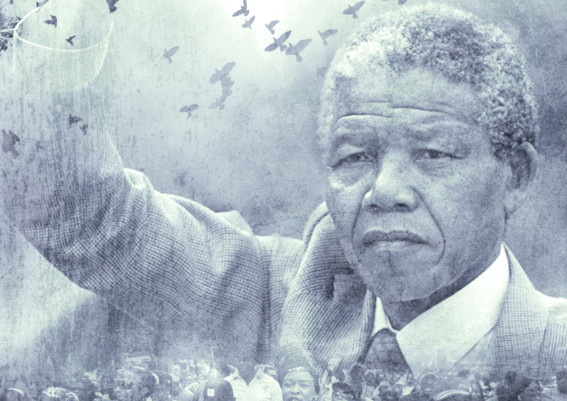
“Though the statue is of one man, it should, in actual fact, symbolise all those who have resisted oppression, especially in my country.” So said Nelson Mandela upon the unveiling of his statue in Parliament Square.
Such words were typical of president Mandela’s modesty. The liberation of South Africa was won by a movement. He led it. And from jail, through the long walk to freedom, from presidential office, he held the movement together.
He displayed the extraordinary characteristics of courage, hope and a spirit of reconciliation that unified the country and have been so widely acknowledged in the days since his death.
The liberation of South Africa would not have happened without the greatness of Mandela, its leader.
But it is important to acknowledge what he said about the power and fortitude of the movement of millions of people — some famous, some not. Walter Sisulu, Oliver Tambo, Cyril Ramaphosa, Steve Biko and so many others whose names we do not know.
When I was 12 years old, I met two such heroes of the movement. Ruth First, a former student of my dad’s, and her husband Joe Slovo. Both were towering figures in the African National Congress (ANC). They were forced to flee South Africa in the 1960s because of the danger to both of them from the regime. She had already been in solitary confinement for 117 days. He faced constant threats to his life. And yet, rather than opting for an easier, safer life in north London — where a blue plaque now commemorates them — they returned to southern Africa to the struggle that defined them and their generation.
And there they were in our living room. They had come to see my parents on a visit from Mozambique. I remember Ruth First’s infectious, joyous laugh, carrying lightly the deep burdens of a life or death struggle.
A few months later, Ruth was killed by a parcel bomb sent by the South African secret police. My mum and dad broke the news to me — both were deeply shocked and upset.
Meeting Ruth First, hearing of her death, left a permanent mark. It showed to me, even at that age, the scale of the issues of injustice in the world. And how high the stakes could be for those who fought such injustice. Thirty years on, it is so easy to forget how bleak things looked back then. I dimly remember Joe Slovo expressing optimism that apartheid could not endure, but it didn’t seem like that to many people at the time. The hatefulness of the regime did not guarantee its destruction and, in those Cold War days, seemed impervious to sanctions.
And that is where, as we remember Mandela, the British anti-apartheid movement deserves recognition too. He described Britain as “the second headquarters of our movement in exile”. As I waited to sign the book of condolences at South Africa House last Friday, I looked out on to Trafalgar Square and thought about all the people who had demonstrated outside month after month, year after year. It looked hopeless, futile, but they kept the flame of hope burning.
All those people in Britain who helped sustain the movement will be feeling deep sorrow, but they should also take great pride in what they helped to achieve. Without their support, and the pressure on the regime which they helped generate, change might not have come.
The way Mandela is now a hero across countries, continents and parties symbolises a recognition not only of what was so wrong about apartheid, but also of the progress South Africa has made since that regime wilted in the face of Mandela’s smile and spirit.
It was president Mandela who helped heal the wounds of the past with his combination of tough determination as well as compassion and generosity to those who jailed him and oppressed his people. Indeed, if you can show this character and forgiveness in response to your oppressors, his life should teach us all something.
And if the struggle that faced those in South Africa puts into perspective whatever else we face in democratic societies, it should also instruct and inspire us in whatever progressive causes we are embarked upon for the future. The death of Mandela reminds us of the justness of his cause, 30 years ago, and its triumph against the odds, as well as the enormous sacrifices and sufferings endured in that struggle.
However, the power of the movement and the arc of his life show us that the greatest obstacles of oppression and injustice can be overcome.
— Guardian News & Media Ltd
Ed Miliband is leader of the UK Labour party and MP for Doncaster North.










